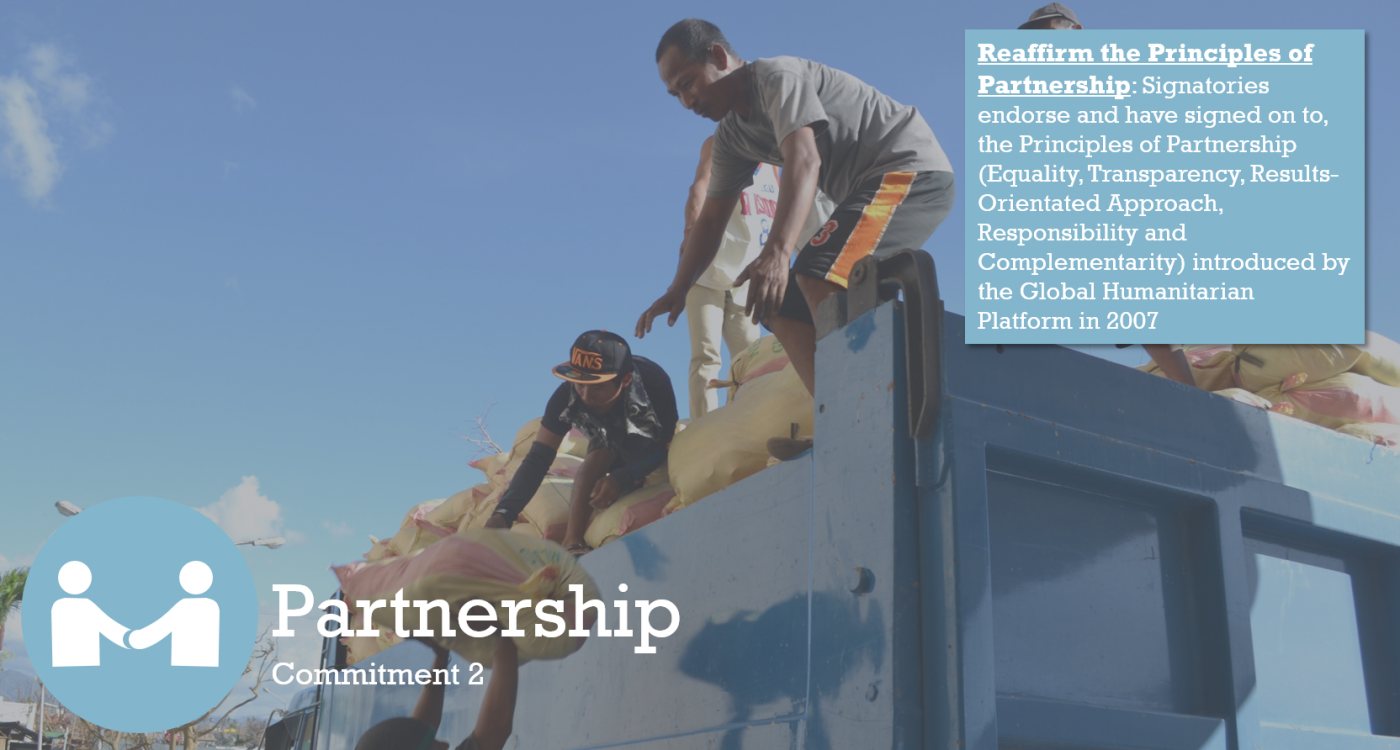The Charter for Change held its annual meeting virtually from 8-10 December. The meeting took place in the context of a global pandemic and in a year in which the decolonisation movement has taken hold, both of which have served to underline further the critical role of front-line local responders in humanitarian crises.
The meeting included a policy event to hear recommendations for accelerating progress on the localisation agenda from local NGO, UN, donor, host government and INGO representatives. A summary of this event is available at https://youtu.be/muwWLnILEIM
The meeting also heard from INGO signatories about best practice and challenges in delivering on the 8 commitments in the Charter, and from local NGO partners about best practices and challenges in driving the C4C agenda forward in a country context. The meeting discussed the importance of the decolonisation and anti-racism agenda in the current context, and held a special session to discuss localisation in the under-represented Latin America and the Caribbean (LAC) region. The meeting also discussed future priorities and directions for Charter for Change.
While some progress has been made towards the advancement of C4C commitments over the past 5 years, there are still many challenges to overcome in achieving a concrete and sustainable shift in power to local humanitarian actors. For this reason, it was agreed that C4C should continue for 5 more years.
A detailed report of the meeting will be available in January but some of the most important issues that C4C will prioritise, focus on and advocate for in 2021 include:
- Shifting the C4C’s centre of gravity to country level. This will require signatory organisations to work harder to make sure that their country offices engage energetically with the Charter for Change, Grand Bargain and localisation agendas in-country. It will imply supporting and strengthening the pioneering Charter for Change country platforms that already exist and encouraging new platforms in additional countries.
- Reaching out to other key humanitarian stakeholders in-country. Charter for Change endorsers will connect and engage energetically with other key humanitarian stakeholders, including in Grand Bargain country-level dialogues.
- Tackling decolonisation and structural racism, including by recruiting staff with concordant values, eradicating bias in recruitment and promotion, freeing up space for local actors in coordination mechanisms and policy forums, and making determined efforts to facilitate the use of languages beyond English including local languages
- Urging donors, UN agencies and INGOs to favour multi-year and flexible funding, require the provision of fair overhead costs in budgets, and increase investments in institutional strengthening
- Encouraging donors to insist that their UN and INGO funding partners honour their Grand Bargain localisation commitments as a condition of continued funding
Why? Because as Philippe Besson, Head of Multilateral Division, Swiss Agency for Development and Cooperation, told the meeting “engaging in genuine partnership with local organisations, based on mutual trust and accountability, is the unique way to make a positive difference in the lives of people who face a crisis.”
Note
The Charter for Change is an alliance of 36 INGO signatories and over 300 LNGO/NNGO endorsers working to promote best practice in empowering partnerships and to advocate to the wider humanitarian community for faster, wider and deeper progress toward localisation. The Charter for Change Secretariat is hosted by Humanitarian Aid International in India. More information can be found at www.charter4change.org


I find the the following two issues should be given due attention and focused to put into practice in coming days :
a) Shifting the C4C’s centre of gravity to country level. This will require signatory organisations to work harder to make sure that their country offices engage energetically with the Charter for Change, Grand Bargain and localisation agendas in-country. It will imply supporting and strengthening the pioneering Charter for Change country platforms that already exist and encouraging new platforms in additional countries.
b) Urging donors, UN agencies and INGOs to favour multi-year and flexible funding, require the provision of fair overhead costs in budgets, and increase investments in institutional strengthening
LikeLike
Hi,
Thank you very much for this faithful synthesis, let us hope that the points raised and agreed upon during our C4C 2020 annual meeting will be put into practice for a better future of our platform.
Happy New Year 2021 to all of you. Pour l’UPDDHE/GL Coordinateur National Méschac NAKANYWENGE UPDDHE/GL-DRC- Point Focal du Réseau C4C/RDC Président du CBCN/NORD-KIVU Acteur PSEA, DDH-E et PEACE BUILDING en RDC B.P 73 Goma Site Web: http://www.upddhegl.org contact@upddhegl.org ; upddheongafrica@gmail.com (Wattasp: +243998802284), (Skype: +243814206071) Facebook: union pour la protection, la défense des droits humains et environnement Linkend: upddhe UPDDHE ONG Twitter: https://twitter.com/upddheongafrica
LikeLike